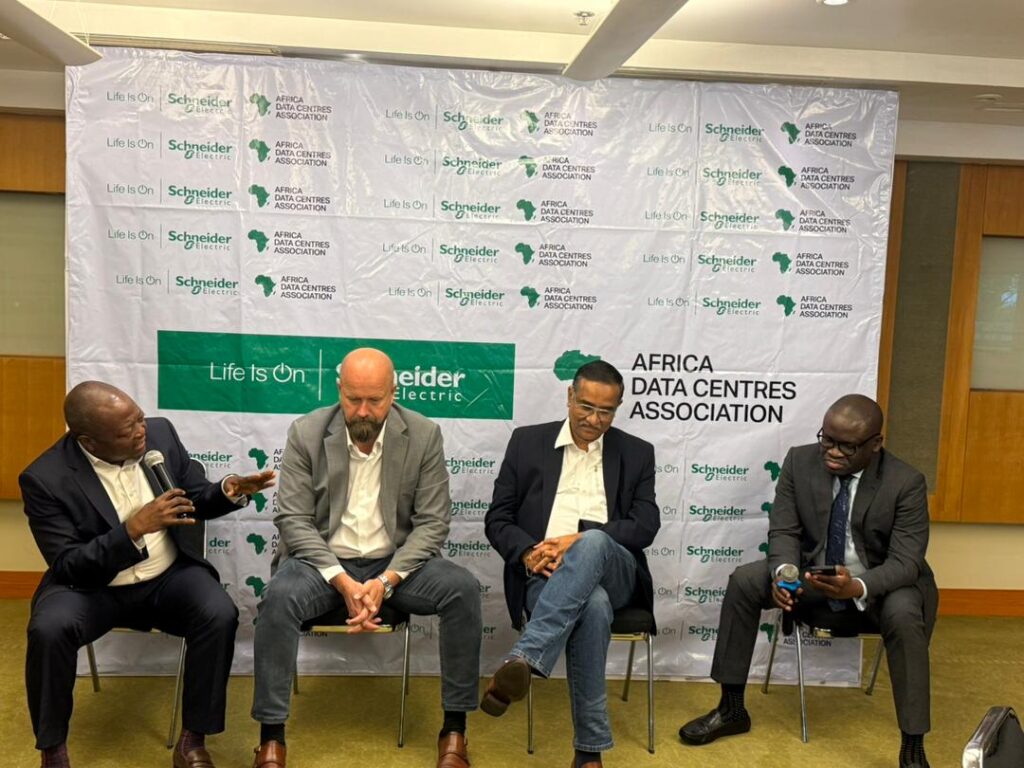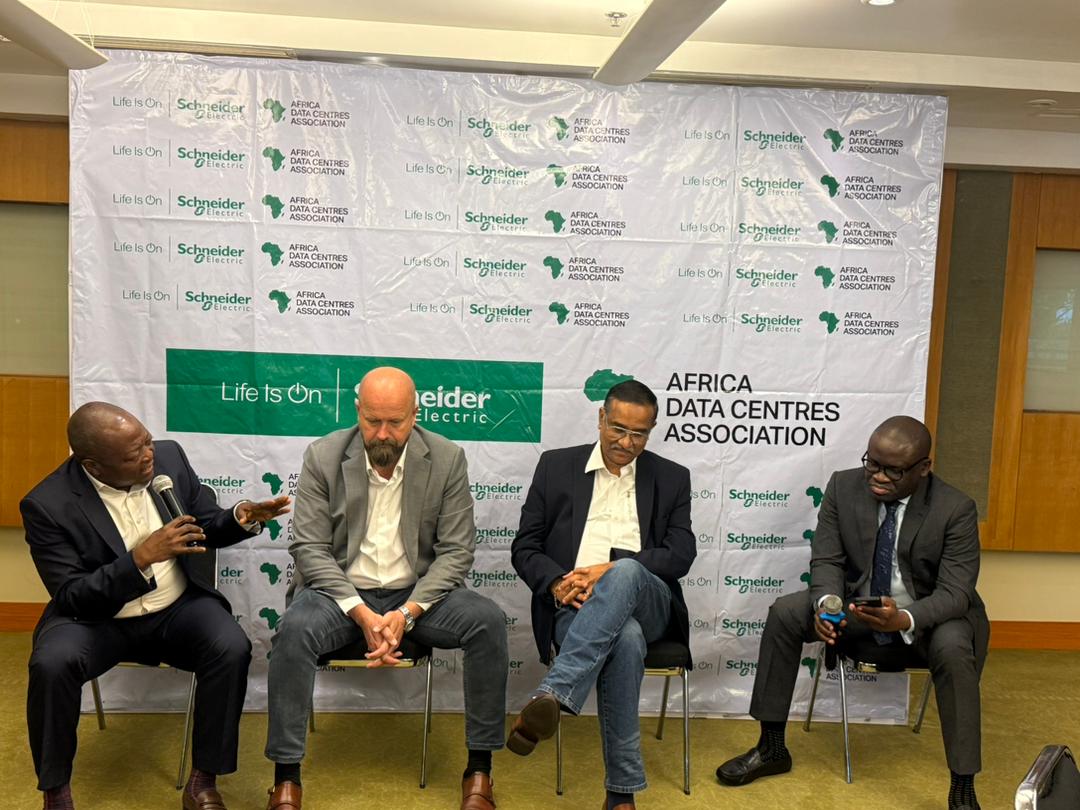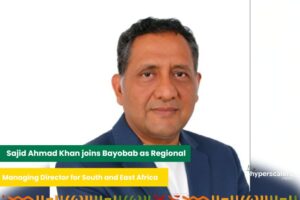In an exclusive forum hosted by the Africa Data Centres Association (ADCA) in partnership with Schneider Electric, some of Nigeria’s top executives converged to address a pivotal question: Is West Africa ready for the future of AI and data centres?
Moderated by Ajibola Akindele, Country President of Schneider Electric West Africa, the panel session brought together Gbenga Adegbiji, Chief Executive Officer of Geniserve; Lars Johannisson, CEO of Rack Centre; and Krishnan Ranganath, Regional Executive at Africa Data Centres, for a candid discussion on energy, scale, and readiness in an era defined by artificial intelligence.
Nigeria’s data center industry has evolved rapidly over the past decade. What began as a response to Central Bank of Nigeria (CBN) regulations requiring banks to host locally has grown into a regional ecosystem of carrier-neutral facilities serving enterprises across sectors. “Ten years ago, a 5-kilowatt rack was considered high density,” said Gbenga Adegbiji. “Today, the dynamics have shifted. Everyone now understands the value of professionally run data centres.”
But as AI reshapes compute demand, Adegbiji warned that the equation is changing. “Data centers used to follow connectivity; now they must follow power,” he said. “It’s easier to extend fibre than transmission lines. Power is now the limiting factor.”
All speakers agreed that energy remains the sector’s central bottleneck. Operators face steep capital and operational costs – driven by imported components, tariffs as high as 35 percent, and an inability to deploy free cooling due to high ambient temperature and humidity. “You need a certain scale to be profitable,” Adegbiji explained. “Our OPEX is also high because we can’t use free cooling like in Europe. That makes rack costs significantly higher in Nigeria.”
Lars Johannisson of Rack Centre called energy “the biggest thing that has to be fixed.” He argued that Nigeria is conceptually ready for AI but practically constrained. “AI demand will come naturally,” he said, “but we must ask: when only 65 percent of the population is connected to broadband, who can afford to consume it? The economics must work.”

Johannisson summarized the readiness challenge with his “Four Ps”: Power, People, Programs, and Public Policy. “Without all four aligned, building for the AI era is difficult,” he said. “Technology evolves so fast that what you build today could be outdated tomorrow.”
Krishnan Ranganath of Africa Data Centres echoed those concerns, highlighting the need for operator collaboration on shared power solutions. “Gas remains our cleanest practical option for now,” he said. “If operators can jointly build or procure energy, we’ll improve both reliability and cost efficiency.” He cautioned, however, against rushing into an AI arms race. “Let’s build data centers and AI infrastructure at our own pace. The cost per megawatt to build here is still higher than in India, and we must make sure the economics are sustainable.”
The discussion also touched on skills development. Adegbiji praised initiatives like Nigeria’s 3 Million Technical Talent (3MTT) program but emphasized the need for deeper alignment between training and operational needs. “By law, tech companies must train people for at least three months,” he said. “By the fourth year, you have confident engineers and a talent pipeline that sustains the industry.”
Still, policy must catch up. While acknowledging the Federal Government’s Critical National Infrastructure policy, the speakers argued for fiscal incentives that recognize the role of operators in digital competitiveness. For all its challenges, the panel agreed that AI represents a generational opportunity – if infrastructure can keep pace. “AI is not very latency-sensitive compared to the cloud,” Adegbiji noted. “It’s compute-intensive. But to run a cluster of high-end GPUs, you must solve the challenge of evacuating the heat, which is the challenge most data centers need to solve”.
West Africa’s readiness, the panel concluded, depends not just on technology but on governance, grid reform, and collaboration. As Akindele summarized in closing, “AI will not wait for us – but if we get the fundamentals right, West Africa can leapfrog into the future of compute.”
Ready to dive deeper into the hyperscale revolution impacting Africa?
READ MORE HERE: www.africa.hyperscalers.news
Contact Us:
Email: projects@hyperscalers.newsPhone: +2348109003350
Follow us on Social Media: Instagram, Facebook, LinkedIn, x





